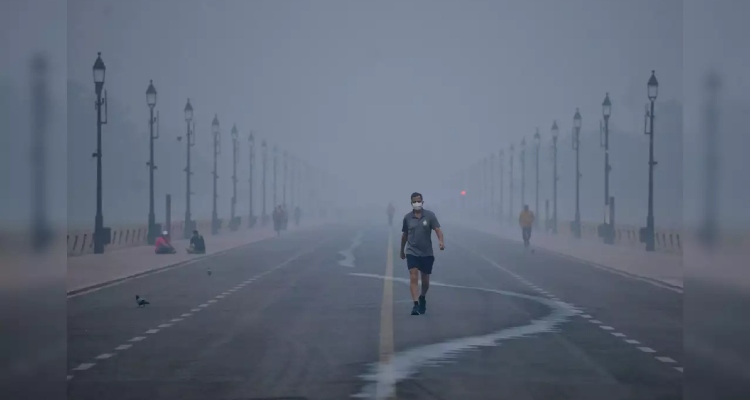
Delhi experienced a slight improvement in air quality on Tuesday, transitioning from last week’s ‘severe’ category to ‘very poor,’ according to the Central Pollution Control Board (CPCB).
At 7 a.m., the Air Quality Index (AQI) stood at 382, still within the ‘Very Poor’ range.
Despite the marginal improvement, a thick blanket of smog continued to engulf the city, affecting visibility in several areas, including near the New Delhi Railway Station, where train operations persisted under hazy conditions.
Last week, Delhi’s AQI hovered in the ‘severe plus’ category for several consecutive days.
For reference, AQI levels are classified as follows: 0-50 is ‘good,’ 51-100 ‘satisfactory,’ 101-200 ‘moderate,’ 201-300 ‘poor,’ 301-400 ‘very poor,’ and 401-500 ‘severe.’
Hybrid Learning Mode Introduced for Schools
In response to the hazardous air quality, the Delhi Government’s Directorate of Education directed schools to follow the Commission for Air Quality Management (CAQM) order. “State governments in the NCR shall ensure that all classes up to the 12th standard are conducted in a ‘hybrid’ mode, i.e., both in ‘physical’ and ‘online’ modes, wherever feasible,” stated the CAQM order.
The directive applies to government, government-aided, and unaided private schools across Delhi, as well as those under the jurisdiction of NDMC, MCD, and the Delhi Cantonment Board. Classes will continue in this hybrid format until further notice.
Supreme Court Emphasizes Education
The decision aligns with a Supreme Court order dated November 25 in the MC Mehta vs. Union of India case. The court instructed CAQM to reconsider air quality-related restrictions in light of their impact on education, emphasizing that the well-being of students must be prioritized.
Highlighting several concerns, the court observed, “A large number of students are being deprived of the facility of mid-day meals as schools and anganwadis are closed.” It also noted the disparity in access to online education, stating, “Many students lack the facilities to benefit from online education, and several institutions are not equipped to provide it.”
The court further raised the issue of inadequate indoor air quality for many students, remarking, “The residences of many students do not have air purifiers, and therefore, there may not be any difference between children sitting at home and those attending school.”
As Delhi continues to grapple with its air pollution crisis, authorities are balancing the immediate need to protect public health with ensuring access to education for all students.




